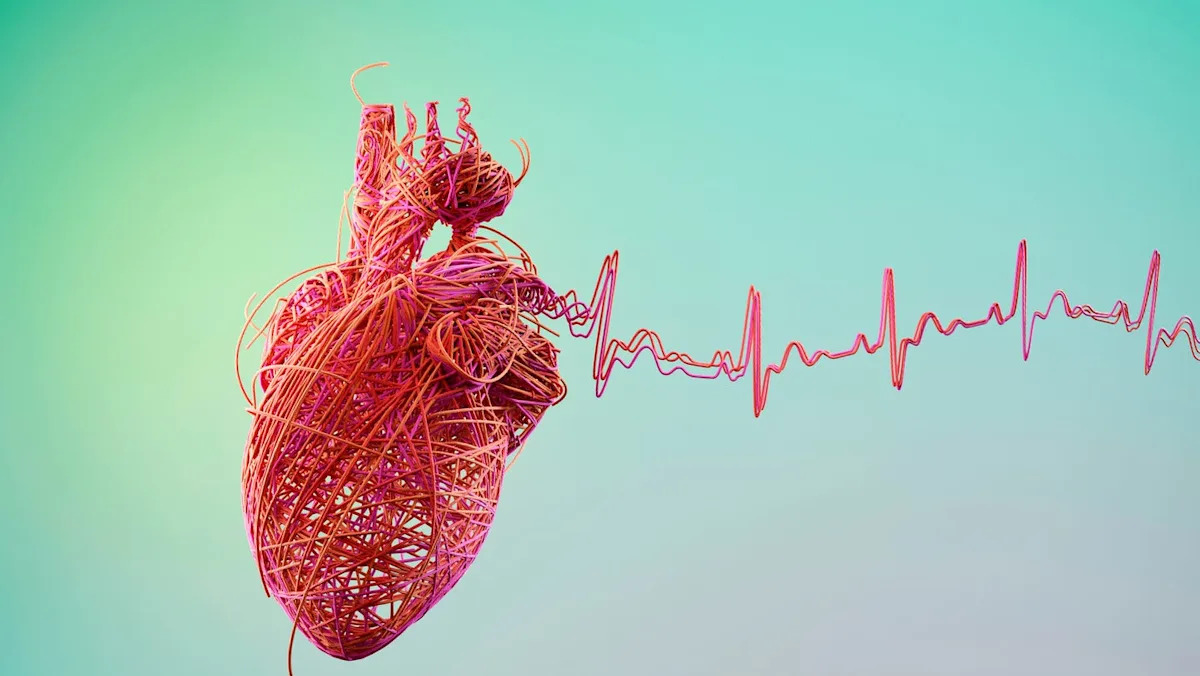“Hearst Magazines and Yahoo may earn commission or revenue on some items through these links.”
Inherited heart conditions affect about one in 250 people worldwide. Over the years, researchers have made a number of scientific advancements, offering hope for identifying and eventually curing these conditions.
Among the scientific progress is the CureHeart Project, consisting of a team of experts from the U.K., U.S., and Singapore to develop effective genetic therapies for cardiomyopathies, or diseases of the heart muscle that make it harder for the heart to pump blood to the rest of the body.
For this research, scientists sought to use precision genetic techniques, called base and prime editing, in the heart for the first time to design and test the first cure for inherited heart muscle diseases, with the aim of turning off faulty genes (so that they are no longer expressing the harmful mutations). While researchers have yet to reach human trials, the treatment is promising, having already seen success in animal trials.
“For decades, we’ve hoped that we could cure heart conditions. Most cardiac conditions are not curable right now, but just manageable,” Richard Wright, M.D., Cardiologist at Providence Saint John’s Health Center in Santa Monica, CA, told Prevention. “At least for this unusual array of disease states where a specific gene is abnormal and we’ve been able to identify it, there’s the possible opportunity, in theory, that we could go right into the cell and fix the fundamental problem in these people and cure them.”
All those with inherited heart muscle conditions, also known as genetic cardiomyopathies, have a 50/50 risk of passing faulty genes on to each of their children, according to Mayo Clinic. And, often, several members of the same family develop heart failure, need a heart transplant, or die at a young age.
About half of the genes that we have are turned on to make proteins in the heart, and there are thousands of mistakes in the genetic code that lead to the heart being too weak or heart muscle being too thick, which can lead to a myriad of health issues. These mutations are one of the more common causes of heart failure, explained Dr. Wright. “If this treatment were successful, you could rather quickly reprogram the genes to make normal, instead of abnormal, proteins within the heart, leading to the heart reversing its dysfunction and going back to normal.”
If you inherit a “bad” gene, it doesn’t necessarily mean you’ll end up with the disease. Some people carry these mutations, or “bad genes,” their whole lives and never manifest any disease. However, in some specific cases, we know for certain that a disease will eventually manifest itself later in life—in which case, we may want to prevent it from ever happening. It’s possible that this cure could be distributed to those with cardiomyopathies at any time in their lives, before or after the condition presents itself.
So how do you go into a cell and correct the genetic code without potentially causing more harm? Scientists used to use viruses to carry information into the cell, which obviously has its potential side effects, but now they have the ability to do it directly and cut out the carrier entirely, which may prove to be much safer, according to Dr. Wright.
What other research is in progress for cardiomyopathy?
There have been many advancements in healthcare research over the past few years, directly related to the goal of curing cardiomyopathies. Some of these include:
-
Findings published in the journal Nature Cardiovascular Research in July 2025 revealed progress in detecting hypertrophic cardiomyopathy (HCM) by harnessing the power of deep learning models and raw electrocardiographic (ECG) voltage data.
-
Findings published in Nature Reviews Cardiology in June 2025 revealed advances in therapeutic approaches in cardiomyopathy, including developments in pharmacological agents and gene-targeted therapies, potentially offering the ability to modify and prevent disease.
-
In September 2024, research published in Nature Medicine showed how artificial intelligence-guided screening using a digital stethoscope improved the diagnosis of pregnancy-related cardiomyopathy in pregnant and postpartum women.
The bottom line
All of the ground-breaking research occurring could mean a cure for not only heart conditions but many other genetic diseases, too. “Genetic blood disorders, such as sickle cell anemia, or brain disorders such as Huntington’s or chorea—these are diseases where we’ve known what the problem is but we just haven’t had the tools to correct the problem,” Dr. Wright said.
—This story was originally published in 2022.
You Might Also Like
